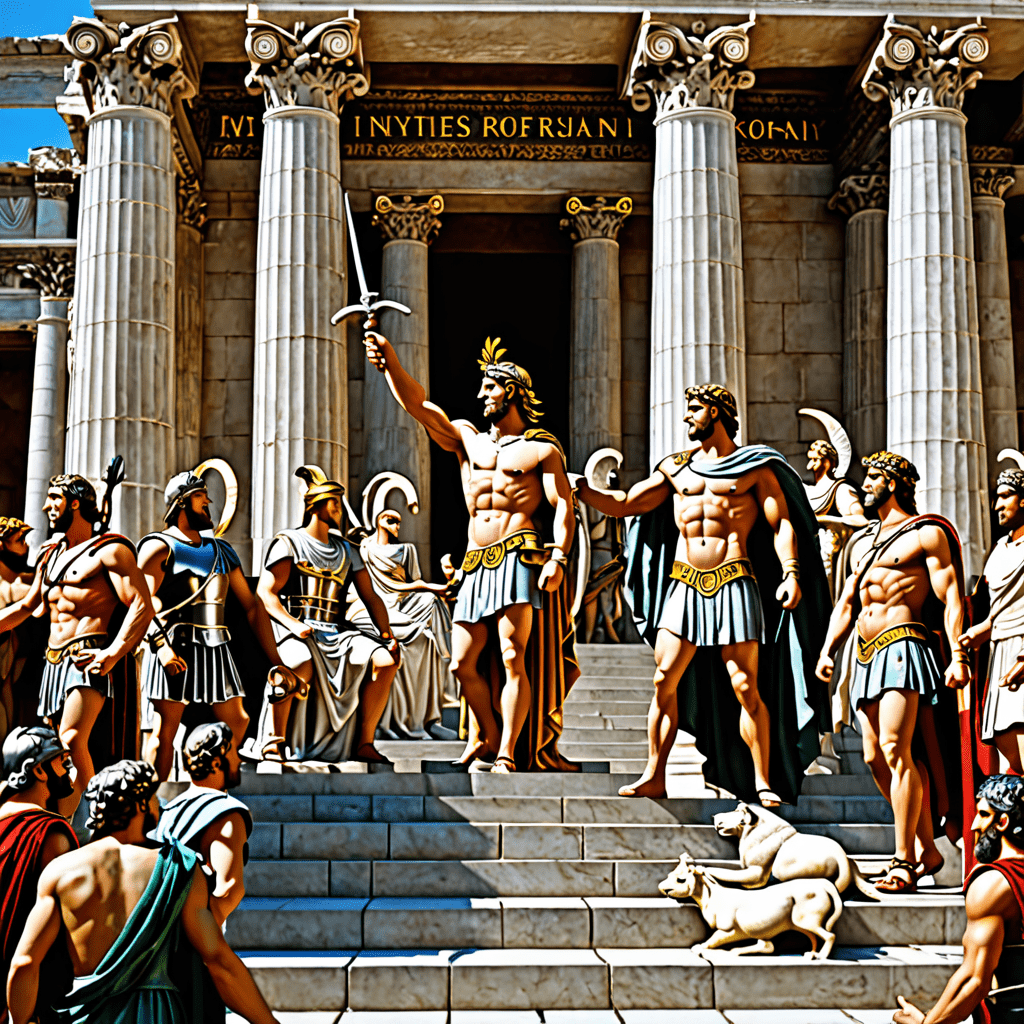The Influence of Roman Mythology on Roman Foreign Policy
Understanding Roman Mythology and its Role
Roman mythology, a significant part of Roman culture, was deeply intertwined with various aspects of Roman life. It shaped the beliefs, values, and narratives that guided the Roman people. This included their approach to governance, societal norms, and even foreign policy.
How Did Roman Mythology Impact Foreign Policy?
Mythological stories often depicted Rome as destined for greatness and emphasized power, victory, and expansion. These narratives influenced Rome’s perception of itself as a dominant force in the ancient world. The belief in divine favor and the protection of certain gods fueled Rome’s ambitions in foreign relations.
Use of Mythological Imagery in Diplomacy
Roman leaders strategically employed mythological imagery and references in diplomatic interactions with other nations. By presenting themselves as chosen by gods or likening their enemies to mythological villains, Romans sought to assert dominance, inspire fear, or cultivate alliances based on shared mythological beliefs.
Legacy of Mythological Influence on Roman Foreign Policy
Even as Rome transitioned from a republic to an empire, the ideas ingrained through mythology continued to shape their interactions with other cultures. The legacy of myths portraying Rome as destined for global supremacy left a lasting impact on Roman imperialism and expansionist policies.
FAQ: The Influence of Roman Mythology on Roman Foreign Policy
What role did Roman mythology play in shaping Roman foreign policy?
Roman mythology heavily influenced the Romans’ perception of themselves and their relationship with other nations. Myths of gods, such as Mars, the god of war, and Minerva, the goddess of wisdom and strategic warfare, inspired the Romans to prioritize military strength and strategic diplomacy in their foreign relations.
How did Roman mythology impact diplomatic decisions?
Roman leaders often drew parallels between mythological narratives and contemporary diplomatic situations. For example, invoking the legend of Aeneas, who founded Rome, could justify territorial expansion or military campaigns. The idea of Pax Romana, inspired by the goddess Pax, also influenced efforts to maintain peace and stability within the empire.
Were there instances where Roman mythology led to conflicts in foreign relations?
Yes, at times the Romans’ belief in their divine destiny, as depicted in mythology, led to conflicts with other civilizations. The belief that Rome was favored by the gods could result in aggressive foreign policies aimed at asserting Roman dominance and spreading Roman influence.
Did Roman mythology have a lasting impact on Roman foreign policy strategies?
Absolutely, the influence of Roman mythology on foreign policy extended throughout the Roman Empire’s existence. Even as Rome transitioned into a Christian


